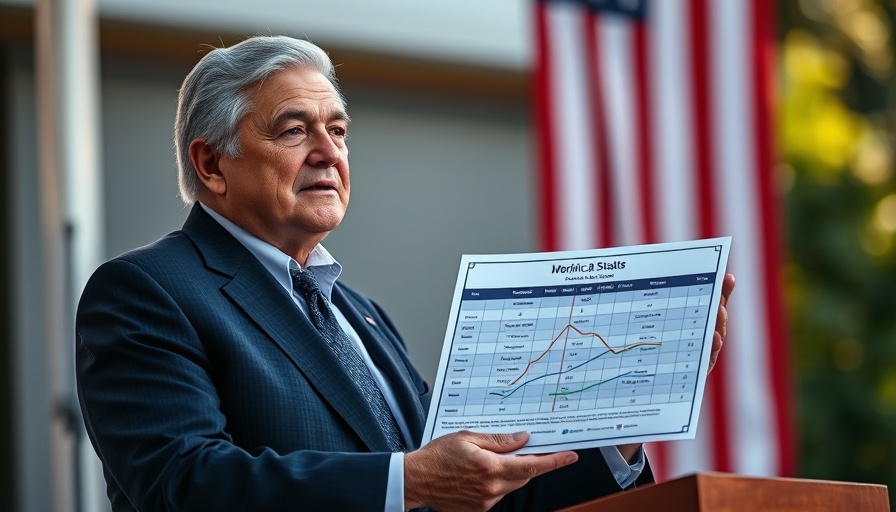
Understanding the Impact of Trump's Global Tariffs
In a momentous announcement, U.S. President Donald Trump declared a significant package of import taxes that will reshape the landscape of global trade. The tariffs, which affect a broad range of countries, are framed as a necessary step towards achieving what Trump termed "economic independence". This unprecedented move could have far-reaching implications, particularly for countries that rely heavily on exports to the United States.
In 'President Trump reveals global tariffs but what does it mean for the world?', the discussion dives into significant global trade implications that prompt a closer look at financial strategies for everyday consumers.
The Tariffs: What are We Really Looking At?
The core of Trump's announcement is a blanket 10% tariff on imports from all countries, with higher penalties for those considered 'unfair traders'—a direct jab at partners like China and the European Union. Notably, the automotive sector takes a hit from a 25% tariff on car imports. This change alters the dynamics significantly, as it is not just a matter of increased costs for consumers but also a restructuring of supply chains across the globe.
Who Will Be Most Affected?
The implications of these tariffs are complex, with some industries in the UK preparing for more challenges. The initial wave of tariffs will push prices up for consumers and potentially threaten jobs in industries where imports constitute significant market shares. British producers could face increased competition from cheaper imports flooding into the market designed to avoid U.S. tariffs. For budget-conscious families in the UK, the reality of rising prices looms large.
What This Means for You
For those navigating the rising costs of living, understanding how global tariffs impact prices on everyday goods is paramount. While a temporary influx of cheaper imports could benefit consumers, the long-term ramifications of a trade war may stifle growth and job security in many sectors. It's essential to leverage this period for better financial planning, be it through budgeting or saving wisely.
Taking Action: Your Best Strategies Amidst Global Changes
As global market conditions evolve, families should revisit their budgets and savings strategies. Consider these actionable steps: prioritize your spending on essential goods, look for sales or substitute products, and stay informed about economic changes that may affect your finances. Utilize local markets which may offer more competitive pricing compared to larger retailers lining up to adjust their pricing strategies.
Ultimately, President Trump’s tariffs represent more than just numbers; they signal a shift in how the global trade system operates. Keeping a keen eye on these developments will empower you to make informed decisions about your finances.
 Add Row
Add Row  Add
Add 




 Add Row
Add Row  Add
Add 

Write A Comment